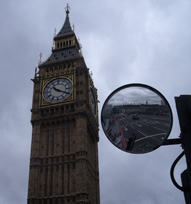Big data is a UK success story; but distrust arising from concerns about privacy and security is often well-founded and must be resolved by industry and Government if the full value of big data is to be realised. So say a committee of MPs in a report.
The Science and Technology Committee says that a ‘big data revolution’ will need work on digital skills and infrastructure, and on people being able to give their informed consent for how their personal data is used.
Nicola Blackwood, Conservative MP for Oxford West and the chair of the committee, said: “We are living in the data age. ‘Big Data’ is driving a revolution in the speed and extent of the data applications that are shaping all aspects of our economy and our day-to-day lives. The use of ‘big data’ is already bringing big benefits. Exploited further, big data will be transformative, unlocking new life-saving research and creating unimagined opportunities for innovation. The Government has a role in this, in sharing and opening up its own data.But big data is also raising legitimate concerns about privacy and the way personal data is being used and sometimes re-used in ways which re-identify previously anonymised data. There is often well-founded distrust about this and about privacy which must be resolved by industry and Government.
“A ‘Council of Data Ethics’ should be created to explicitly address these consent and trust issues head on. And the Government must signal that it is serious about protecting people’s privacy by making the identifying of individuals by de-anonymising data a criminal offence.”
As for Government use of its big data, the failure of the ‘care.data’ initiative, for sharing patients’ health data, shows that patients’ consent cannot be taken for granted. The Government cannot afford a second failure from a re-launched scheme, the committee warns. The EU agreed a General Data Protection Regulation in December 2015. It will now require changes within the next two years to the UK’s Data Protection Act 1998. The committee urges the Government to introduce a criminal penalty for serious data protection breaches and roll out a ‘kitemark’ developed by the Information Commissioner identifying good data practice.
Businesses and governments that communicate most effectively with the public, giving the citizen greater control in their data transactions by using simple and layered ‘privacy notices’, and allowing the consumer to decide exactly how far they are willing to trust each data-holder, will gain most. If informed, freely-given consent is the bedrock of a trusting relationship between a consumer and a data-holder, then it must always be part of that deal that consent freely-given can also be freely-withdrawn.









